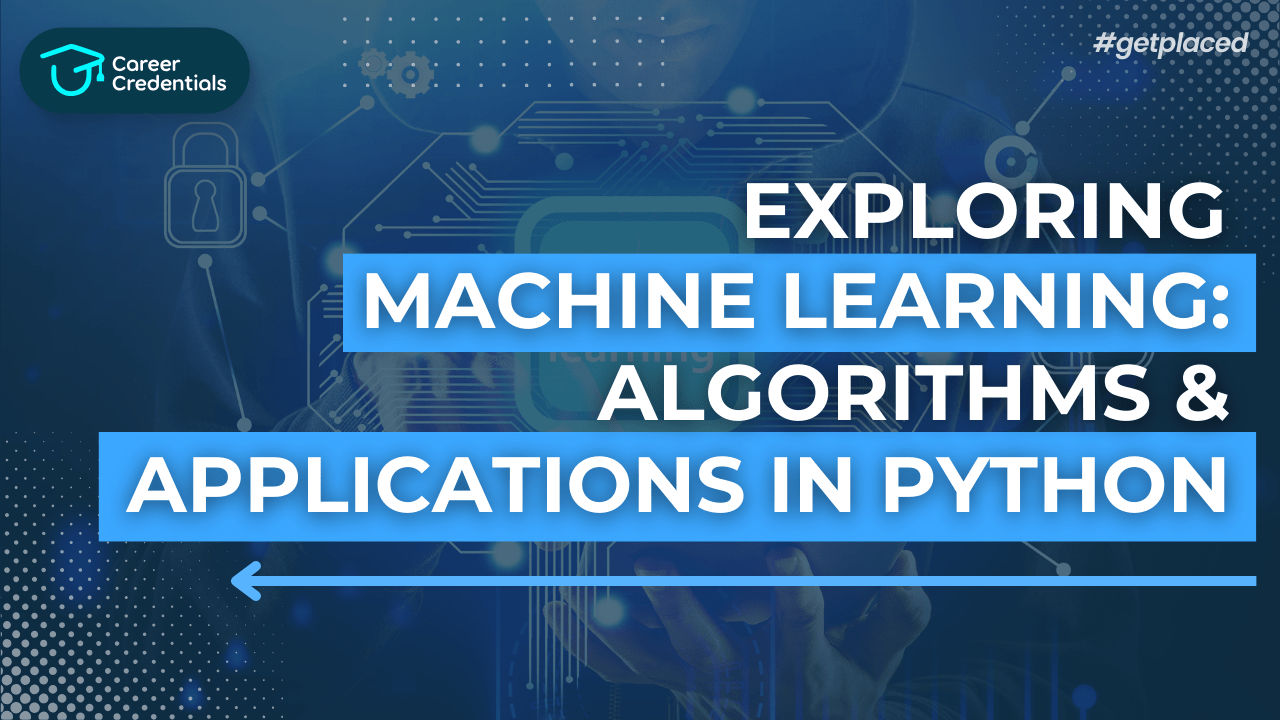Exploring Machine Learning: Algorithms & Applications in Python

Welcome to our exploration into the fascinating realm of Machine Learning (ML), powered by Python. In this blog post, we'll delve into the core algorithms that drive ML and explore some of the diverse applications that are transforming industries and daily life, all within the Python programming language.
Understanding Machine Learning Algorithms
Machine Learning algorithms are the backbone of this revolutionary technology. These algorithms enable computers to learn from data and make decisions or predictions without being explicitly programmed. Here are some fundamental ML algorithms implemented in Python:
1. Linear Regression
- A basic yet powerful algorithm used for regression tasks.
- Applications: Predicting house prices based on features like size and location, forecasting sales, and analyzing trends.
- Python Library: scikit-learn (sklearn)
2. Decision Trees
- Tree-like models of decisions based on features.
- Applications: Classification tasks like spam detection in emails, customer segmentation in marketing, and medical diagnosis.
- Python Library: scikit-learn (sklearn)
3. Support Vector Machines (SVM)
- Effective for both classification and regression tasks.
- Applications: Handwriting recognition, image classification, and bioinformatics.
- Python Library: scikit-learn (sklearn)
4. Neural Networks
- Inspired by the human brain, capable of learning complex patterns.
- Applications: Deep Learning, used in image and speech recognition, autonomous vehicles, and natural language processing.
- Python Libraries: TensorFlow, PyTorch, Keras
5. Clustering Algorithms (e.g., K-means)
- Grouping similar data points together.
- Applications: Market segmentation, anomaly detection, and recommendation systems.
- Python Library: scikit-learn (sklearn)
Applications of Machine Learning in Python
Now, let's shift our focus to the real-world impact of Machine Learning across various sectors, all of which can be implemented using Python:
1. Healthcare
- ML aids in diagnosing diseases from medical images (like X-rays and MRIs).
- Predictive analytics for patient outcomes and hospital resource management.
- Personalized medicine based on genetic information and patient history.
2. Finance
- Fraud detection using anomaly detection algorithms.
- Algorithmic trading for analyzing market trends and making investment decisions.
- Credit scoring and risk assessment for loans.
3. Retail
- Recommendation systems for personalized shopping experiences.
- Inventory management and demand forecasting.
- Customer sentiment analysis through social media and reviews.
4. Automotive
- Autonomous vehicles rely heavily on ML for perception, decision-making, and mapping.
- Predictive maintenance to identify issues before they occur, reducing downtime.
5. Cybersecurity
- ML algorithms detect and prevent cyber threats in real-time.
- User behavior analytics for identifying unusual activities.
6. Natural Language Processing (NLP)
- Translation services like Google Translate.
- Sentiment analysis of customer feedback.
- Chatbots and virtual assistants for customer support.
The Future of Machine Learning with Python
As we continue to advance in ML research and development, the future holds even more exciting possibilities within the Python ecosystem:
- Explainable AI: Ensuring transparency and understanding in AI decision-making processes.
- AI Ethics: Addressing bias and fairness in ML algorithms.
- Edge Computing: ML models running directly on devices, enabling faster and more privacy-conscious applications.
- Continual Learning: AI systems that can adapt and learn from new data continuously.
In conclusion, Machine Learning algorithms implemented in Python are the driving force behind countless applications that are shaping our world. From healthcare to finance, retail to automotive, the impact of ML is profound and ever-expanding. Python's versatility and powerful libraries such as scikit-learn, TensorFlow, PyTorch, and Keras make it a top choice for implementing and deploying ML models. As we navigate this era of rapid technological advancement, understanding these algorithms and their applications in Python empowers us to harness the full potential of Machine Learning for a brighter future.
Confused About Your Career?
Don't let another opportunity pass you by. Invest in yourself and your future today! Click the button below to schedule a consultation and take the first step towards achieving your career goals.
Our team is ready to guide you on the best credentialing options for your aspirations. Let's build a brighter future together!
Empower Yourself. Elevate Your Career at Career Credentials Where Education meets Ambition.
